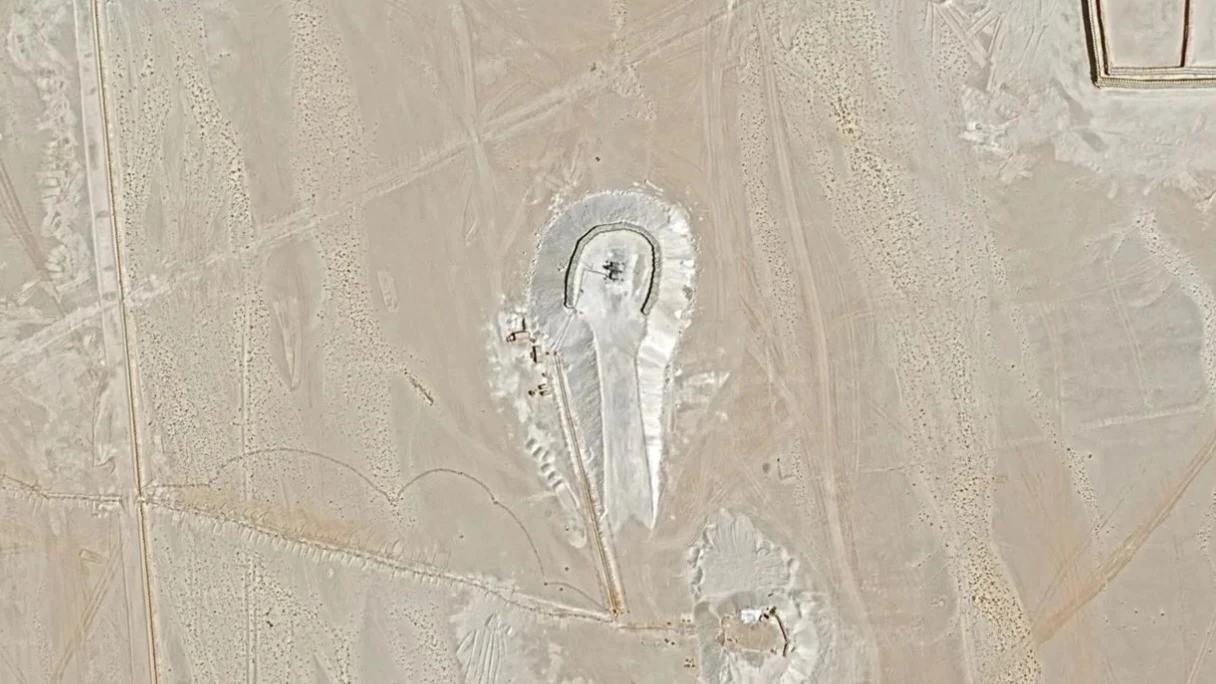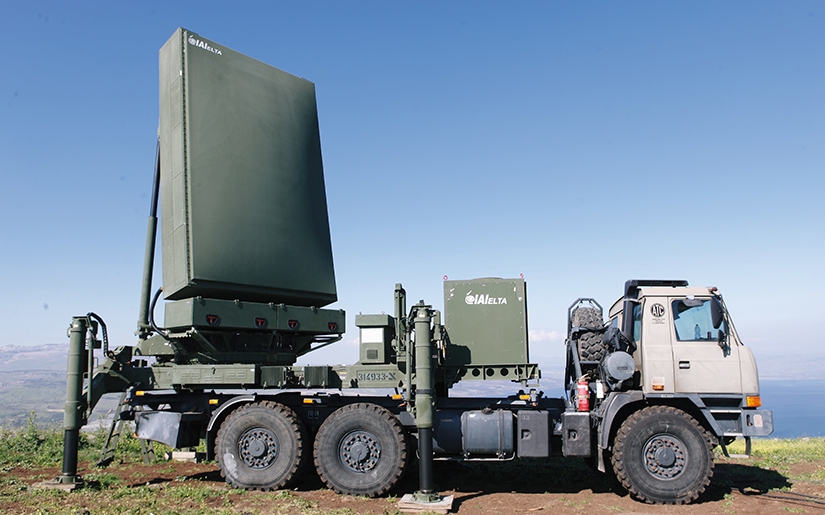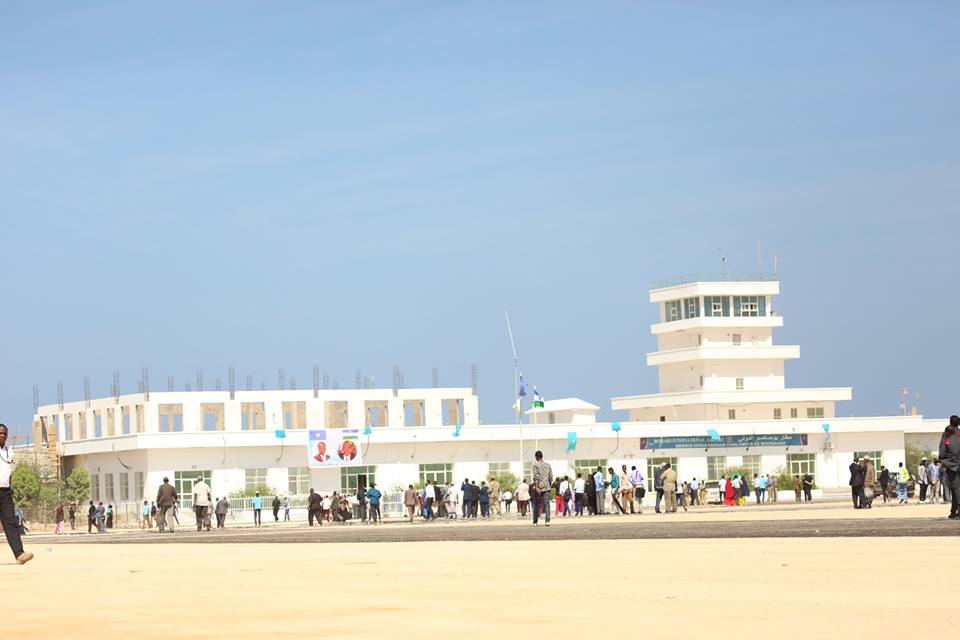UAE Deploys Israeli Radar in Somalia as Bosaso Becomes Secret Hub for Sudan’s RSF War Effort
The move is seen as part of Abu Dhabi’s broader strategy to reinforce the security of its infrastructure assets in East Africa, amid rising regional tensions driven by retaliatory strikes from the Yemeni Armed Forces against targets suspected of being linked to Gulf Arab interests.
(DEFENCE SECURITY ASIA) — The United Arab Emirates (UAE) has reportedly deployed an advanced Israeli-made military radar system in Somalia’s semi-autonomous Puntland region to protect Bosaso Airport from potential drone and missile attacks launched by the Yemeni Armed Forces (YAF).
The move is seen as part of Abu Dhabi’s broader strategy to reinforce the security of its infrastructure assets in East Africa, amid rising regional tensions driven by retaliatory strikes from the Yemeni Armed Forces against targets suspected of being linked to Gulf Arab interests.
The radar system, identified as the ELM-2084 3D AESA (Active Electronically Scanned Array), was installed near Bosaso Airport earlier this year, as revealed by satellite imagery dated March 2025.
Diplomatic relations between the UAE and Israel were formally established on 13 August 2020 through the historic Abraham Accords, an agreement brokered by the United States.
The normalization treaty was officially signed on 15 September 2020 at the White House in Washington D.C., witnessed by Israeli Prime Minister Benjamin Netanyahu, UAE Foreign Minister Sheikh Abdullah bin Zayed Al Nahyan, and then-U.S. President Donald Trump.
The UAE thus became the third Arab nation, after Egypt (1979) and Jordan (1994), and notably the first from the Arabian Gulf, to establish full diplomatic relations with Israel.
The ELM-2084 radar is a state-of-the-art system developed by Israel’s leading defence firm, ELTA Systems, a subsidiary of Israel Aerospace Industries (IAI).

Engineered for three primary missions—air threat detection and tracking, air defence system management, and artillery fire support—the radar leverages 3D AESA technology to scan airspace at high speed without physically rotating its antenna.
This capability allows the ELM-2084 to detect, track, and classify a wide range of airborne threats—including drones, ballistic missiles, cruise missiles, rockets, and fighter aircraft—in a remarkably short response time.
Depending on its configuration, the radar offers a detection range of 100 to 470 kilometers and can simultaneously track hundreds of targets, providing a critical operational edge in modern, highly saturated combat environments.
Within Israel’s missile defence architecture, the ELM-2084 serves as a central component for systems such as Iron Dome, David’s Sling, and the Arrow ballistic missile interception system.
Its ability to detect missile and rocket launches at long distances and accurately predict their impact points significantly enhances early warning capabilities, improving interception chances before hostile projectiles reach their targets.
Designed to perform across diverse climatic and operational conditions, the ELM-2084 is also resilient against electronic warfare tactics such as jamming and signal disruption.

Its modular design allows it to be deployed on mobile platforms, making it exceptionally versatile for rapid deployment to defend airports, border regions, and critical national infrastructure.
In a parallel development, Abu Dhabi has reportedly been using Bosaso Airport as a logistical hub to supply arms and ammunition to Sudan’s Rapid Support Forces (RSF), which has been locked in a bloody two-year civil war against the Sudanese Armed Forces (SAF).
Large cargo aircraft have allegedly conducted frequent arms shipments from Bosaso to Sudan, with up to five major consignments recorded on some days.
Despite the scale of UAE’s military operations, Somalia’s national authorities have conspicuously maintained silence on the UAE’s expanding footprint in Puntland.
Puntland’s President, Said Abdullahi Deni, has allegedly authorized UAE’s activities without formal approval from either Somalia’s federal government or Puntland’s regional parliament.
According to two Somali sources, the arrangement has been described as a “secret deal”, with even senior Puntland officials kept in the dark about the full scope of the operations.

The Rapid Support Forces (RSF) is Sudan’s most powerful paramilitary organization, originally emerging from the notorious Janjaweed militias during the Darfur conflict before being formally integrated into Sudan’s security apparatus.
Since the outbreak of civil war in April 2023, the RSF and the SAF have engaged in brutal urban and territorial battles, resulting in tens of thousands of deaths and forcing millions of Sudanese civilians to flee into neighbouring countries.
The conflict has generated deep international concern, given Sudan’s critical geographical location between East Africa and North Africa and its proximity to the Red Sea maritime routes vital to global trade.
Led by General Mohamed Hamdan Dagalo, better known as “Hemedti”, the RSF is believed to have secured logistical and material support from several foreign powers, including nations from the Gulf.
The UAE’s use of Bosaso Airport as a supply line for the RSF underscores not only the growing complexity of regional geopolitical entanglements but also highlights how Sudan’s internal turmoil is increasingly destabilizing the Horn of Africa.
Regional analysts view UAE’s actions as part of a broader strategy to consolidate influence across East Africa, although it simultaneously increases the risk of dragging Somalia deeper into regional proxy conflicts.
UAE’s reported backing of the RSF is motivated by a mixture of strategic and economic interests.
Notably, Dubai serves as a major destination for Sudanese gold exports, a substantial portion of which is believed to be controlled by RSF-linked networks operating outside formal channels.
This relationship provides the RSF with crucial revenue streams while granting the UAE access to a lucrative and strategic resource.
Beyond gold, the UAE has invested heavily in Sudanese infrastructure projects, particularly in port facilities along the Red Sea, with its support for the RSF aimed at safeguarding and expanding these economic investments.
By bolstering the RSF, Abu Dhabi seeks to fortify its political and economic influence in East Africa and the broader Horn of Africa region, in alignment with its long-term foreign policy ambitions.
The UAE and Sudan also share a longstanding military relationship, having collaborated in conflicts such as the Yemen war.
Support for the RSF, therefore, may be seen as an extension of pre-existing defence ties.
While the UAE government officially denies providing arms or military assistance to the RSF, mounting evidence and international criticism suggest otherwise, raising fresh concerns about Abu Dhabi’s role in perpetuating Sudan’s devastating conflict.
— DEFENCE SECURITY ASIA



